#missile carrier
Explore tagged Tumblr posts
Video
youtube
In this episode of Lancer Custom Werks, Viceroy, a missile carrying frame that desires to guide those missiles in close range by itself than by electronic guidance, what can you do with it?
#youtube#Lancer rpg#ttrpg#Lancer Custom Werks#Builds#Review#Viceroy#ALL THE MISSILES#SRM CARRIER DESCENDENTS
40 notes
·
View notes
Text
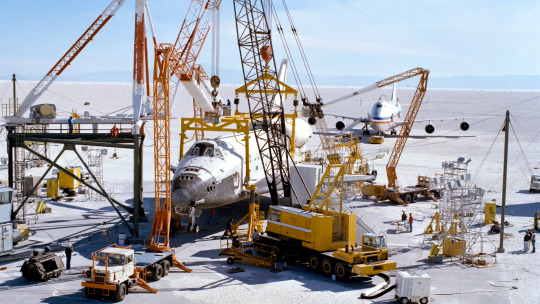
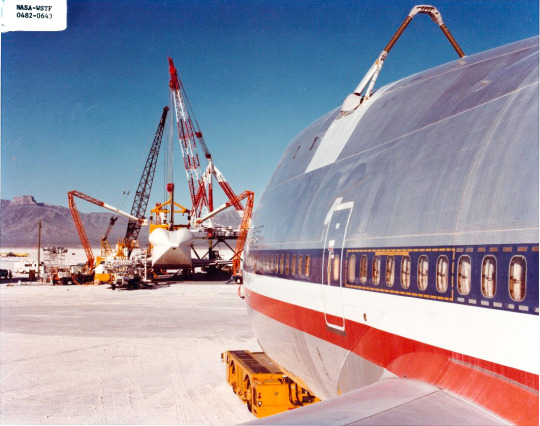
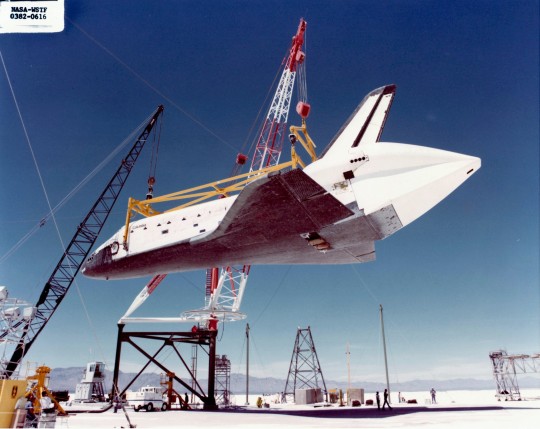
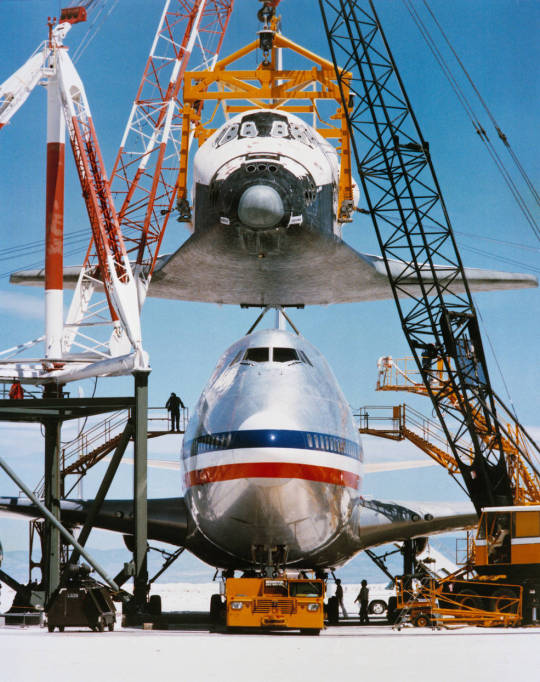
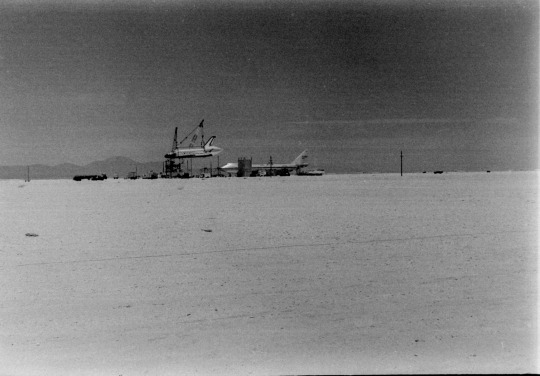
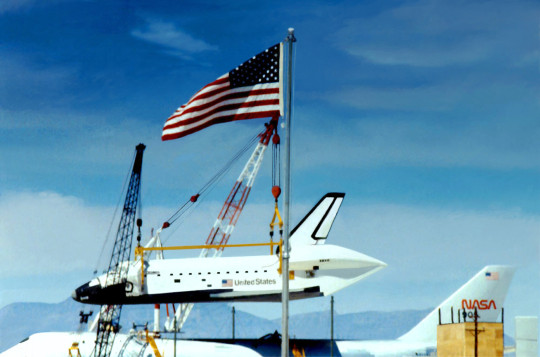

Workers lift and attach STS-3 Columbia onto the 747 SCA.

"Another 90,000 spectators later saw the shuttle at Northrup Strip during its preparation for the return to Kennedy Space Center."
Date: April 5, 1982
NASA ID: WSTF 0482-0643, WSTF 0382-0626, WSTF 0382-0596, WSTF 0382-0616
source, source
#STS-3#Space Shuttle#Space Shuttle Columbia#Columbia#OV-102#Orbiter#NASA#Space Shuttle Program#April#1982#white sands#white sands missile range#New Mexico#Boeing 747#747#747 SCA#Shuttle Carrier Aircraft#my post
86 notes
·
View notes
Text

USS DETROIT (AOE-4) is flanked by USS SAN JACINTO (CG-56), left, and USS JOHN F. KENNEDY (CV-67) as the ships conduct an underway replenishment during Operation Desert Storm in the Red Sea.
Photographed by PH3 Falkenhainer on February 1, 1991.
NARA: 6467907
#USS Detroit (AOE-4)#USS Detroit#Sacramento class#fast combat support ship#support ship#USS San Jacinto (CG-56)#USS San Jacinto#Ticonderoga Class#Guided Missile Cruiser#Cruiser#USS John F. Kennedy (CV-67)#USS John F. Kennedy#Aircraft Carrier#February#warship#ship#Operation Desert Storm#1983#united states navy#us navy#navy#usn#u.s. navy#my post#Red Sea
65 notes
·
View notes
Text

Goggle Caesar my beloved
#goggle v#sentai#yeah thats a cool carrier mech you've got there but does he have a lil mouth?? with missiles in??????#SHORI DA GOGGLE FIVE. SHORI DA GOGGLE FIVE.#*uses this as an opportunity to discuss how i think kuroda and miki are very close*#*and kuroda takes on a very protective older brother role for miki who is meANT TO BE FUCKING 16 WHY IS SHE SO YOUNG*#who's letting that child fire missiles jesus christ#(its kuroda. he's letting her fire the missiles)
5 notes
·
View notes
Text
F-14 FUN FACT OF THE DAY #3
The AIM-54 Phoenix missile, the F-14 Tomcats reason for existence, weighed about 1000 lbs (500 kg to my non-US aviation enthusiasts). The F-14 was capable of carrying 6 missiles at a time and a full load of the Phoenix missiles and launch rails would weigh over 8,000 lbs (3600 kg). This was well above the allowable bringback weight for landing meaning that if no missiles were used they would have to jettison some of them before they land. This was not typical as F-14s would carry maybe two Phoenix missiles at a time.
#FFFOTD#SOURCE: CARRIER by Tom Clancy#top gun#F-14 Tomcat#I like planes#airplane history!#AIM-54 Missiles#another one today cause it’s kinda along the same lines as the last one
7 notes
·
View notes
Text
youtube
#youtube#usmilitary#LHA 7#amphibious ready group#missile launch#USS Tripoli#surface warfare#amphibious warfare#amphibious assault carrier#naval defense#military technology#US Navy#defense technology
0 notes
Text
Military Powerhouses of 2024: A Comparison of Global Superpowers
Military Powerhouses of 2024: A Comparison of Global Superpowers #Chinanavalexpansion #Frenchmilitary
#China naval expansion#French military#global military power#India missile capabilities#NATO#Russia nuclear arsenal#U.S. defense dominance#UK aircraft carriers
0 notes
Link
The article by Peter Suciu on "The Armory Life" discusses the USS Long Beach (CGN-9), America's first nuclear-powered cruiser, highlighting its significance in naval history and its challenges. The USS Long Beach, built by Bethlehem Steel and commissioned in 1961, was notable for being the first all-missile ship and having a nuclear power plant. It played significant roles in operations like Operation Sea Orbit and the Vietnam War. Despite its advanced design, its retirement and dismantling highlight the substantial costs and issues associated with nuclear-powered vessels. The article underscores the legacy of the USS Long Beach and its impact on subsequent naval strategies, ending the experiment with nuclear-powered surface combatants and reserving nuclear power for submarines and aircraft carriers in modern navies.
#USS Long Beach#nuclear cruiser#U.S. Navy#Cold War#missile systems#nuclear propulsion#guided-missile cruiser#Long Beach Naval Shipyard#operational history#technological innovations#naval warfare#radar systems#Talos missiles#Terrier missiles#Tartar missiles#combat operations#Mediterranean Sea#Vietnam War#Operation Sea Dragon#aircraft carrier support#decommissioning.
0 notes
Text
Bastion-P Spotted in Crimea - What Is This Weapon? - Technology Org
New Post has been published on https://thedigitalinsider.com/bastion-p-spotted-in-crimea-what-is-this-weapon-technology-org/
Bastion-P Spotted in Crimea - What Is This Weapon? - Technology Org
The pro-Ukrainian guerrilla group Atesh, which monitors Russian movements in occupied Crimea, has spotted the movement of Bastion-P systems. This is a very dangerous Russian weapon capable of launching hypersonic missiles. Ukraine already suffered from the strikes of the Bastion-P, which makes it very important to track these systems down.
Bastion-P systems ready for launch. These systems fire Oniks missiles, originally meant for destroying ships. Image credit: Mil.ru via Wikimedia (CC BY 4.0)
“Our agent conducting reconnaissance in Sevastopol managed to capture the deployment of two self-propelled launchers SPU 340P, also known as the Bastion-P Coastal Missile System. These systems are used to destroy ships of various classes and types, and can also attack ground targets,” Atesh said in its statement.
Members of the underground Crimean resistance organization Atesh also published photos of the system driving on public roads. They added that they managed to identify the Russian unit that operates these particular Bastion-P systems that were now spotted. The members of the resistance also determined the final destination of the trip that they’d seen.
The development of the K-300P Bastion-P coastal defence system began sometime in the 1990s, but the first such systems officially entered service with the Russian forces only in 2015. The mobility of the system is ensured by an 8×8 chassis, on which a container with two rocket launch tubes is installed. Upon arrival at the launch site, those tubes rise to a vertical position and fire P-800 Oniks missiles.
One such missile has a warhead of 200-300 kg and can accelerate to about 3180 km/h (it’s technically a hypersonic missile). The range of Oniks depends on the version, but there are some that can cover as much as 800 km. Oniks can shoot up to an altitude of 14 km and then descend closer to the surface of the water closer to the target to avoid being detected and shot down. It is a very powerful and advanced missile.
The primary target of the Bastion-P systems are a variety of surface ships, including large battle groups escorting aircraft carriers. The Bastion-P is designed to defend the coast against various ships, including amphibious landing ships. However, as Atesh notes, these systems can also be used to destroy ground targets. And unfortunately, Ukraine learned this in the worst way possible.
Oniks missiles launched by Bastion-P systems are known to have hit Ukrainian coastal cities including Odessa in 2022 and 2023. Before the war, Russia was thought to have only about 40 Bastion-P systems, but now the exact number is hard to estimate. But their presence in Crimea will always be bad news for Ukraine.
The only good news is that the local resistance is tracking these systems and know their locations – this can help Ukraine defeat them or at least predict their actions.
Written by Povilas M.
Sources: Tech.wp.pl, Wikipedia
#2022#2023#aircraft#aircraft carriers#Authored post#Capture#cities#classes#container#deployment#development#Featured Military news#hypersonic#it#members#Military technology#missile#missiles#Mobility#monitors#movement#News#notes#One#organization#photos#reconnaissance#Rocket#russia#Russia Ukraine War
0 notes
Photo




Inside the magazine of an aircraft carrier
38 notes
·
View notes
Text
Surprised to find out that B-52 has been im service for more than 70 years, and may as well staying and celebrate its 100 years ceremony
Its actually beautiful, with a wide wingspan and quite a long length, like the B-52 is flying so effortlessly
Which is, according to the crazy almost-sea-surface-level flying photos beside aircraft carrier, pretty much ture, I guess
And that one last scene of that youtube vedio caught me off guard
A B-52, in its military grey paint, makes a turn on the runway and the sunlight happens to shine for a mere second on the cockpit window
Like a wink toward the camara
Yeah, I know I'm too humanizing these weapons that were made just to kill as much as it can and post a threat to its enemies, but all that effort pour into making them took to the sky and survived in battles are just…
Can't describe the feeling in words at all
That effort is what makes these things so beautiful. Deadly, for sure, but still so fascinating and remarkable
#my own post#B-52#never know they could freaking fly below deck level of an aircraft carrier#it's insane#adn not to mentioned the “In Harms Way” logo that one B-52 got cuz it was shot in the tail due to a misguided missile#but that B-52 managed to land safely and took to the sky after its fully repaired#that gave me goosebumps when I first saw a vedio featuring the history of the F-15#both are such flexible and long-lived aircraft aren't they?
1 note
·
View note
Text
and it's *my* moral duty to tell people that if they've already played through AC6 and have it on PC, the AC6 armory mod is a great excuse to replay it. Adds tons of variant parts, some just stat boosts but a fair number with straight up unique abilities like anti-missile flares, drone spawning, regen, etc, and they've also started adding in new parts like a sniper rifle or playable balteus parts. It's seriously so cool
youtube
youtube
youtube
It’s my moral duty to tell people to play armored core 6 in any circumstance where I’m talking about video games. I must spread the word
#armored core 6#ac6#seriously though juking past balteus' missiles with a well timed flare burst to deliver a melee to his dumb little baby carrier head is sic#Youtube
98 notes
·
View notes
Text
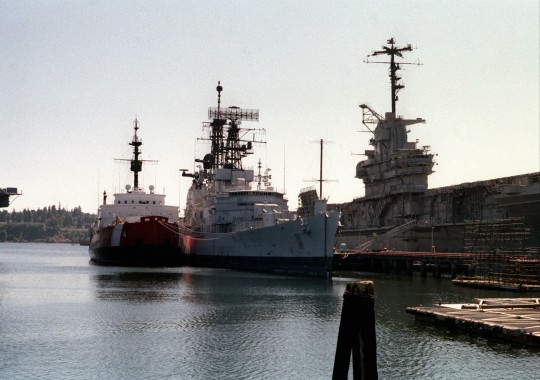
Laid up at the Naval Inactive Ship Maintenance Facility at Puget Sound Naval Shipyard are, from left to right, USCGC GLACIER (WAGB-4), USS OKLAHOMA CITY (CG-5) and USS ORISKANY (CV-34).
Photographed by LT Fallon on January 25, 1990.
NARA: 6450777
#USS Oriskany (CV-34)#USS Oriskany#Essex Class#Aircraft Carrier#USS Oklahoma City (CG-5)#USS Oklahoma City#Galveston Class#Guided Missile Cruiser#Cruiser#USCGC Glacier (WAGB-4)#USCGC Glacier#Icebreaker#warship#ship#mothballs#reserve fleet#January#1990#united states navy#us navy#navy#usn#u.s. navy#my post
63 notes
·
View notes
Text
THE REGIONAL WAR in the Middle East now involves at least 16 different countries and includes the first strikes from Iranian territory on Israel, but the United States continues to insist that there is no broader war, hiding the extent of American military involvement. And yet in response to Iran’s drone and missile attacks Saturday, the U.S. flew aircraft and launched air defense missiles from at least eight countries, while Iran and its proxies fired weapons from Iraq, Syria, and Yemen.
[...]
While the world has been focused on — and the Pentagon has been stressing — the comings and goings of aircraft carriers and fighter jets to serve as a “deterrent” against Iran, the U.S. has quietly built a network of air defenses to fight its regional war. “At my direction, to support the defense of Israel, the U.S. military moved aircraft and ballistic missile defense destroyers to the region over the course of the past week,” President Joe Biden said in a statement Saturday. “Thanks to these deployments and the extraordinary skill of our servicemembers, we helped Israel take down nearly all of the incoming drones and missiles.” As part of that network, Army long-range Patriot and Terminal High Altitude Area Defense surface-to-air missile batteries have been deployed in Iraq, Kuwait, the United Arab Emirates, Qatar, Saudi Arabia, Jordan, and at the secretive Site 512 base in Israel. These assets — plus American aircraft based in Kuwait, Jordan, the UAE, Qatar, and Saudi Arabia — are knitted together in order to communicate and cooperate with each other to provide a dome over Israel (and its own regional bases). The United Kingdom is also intimately tied into the regional war network, while additional countries such as Bahrain have purchased Patriot missiles to be part of the network. Despite this unambiguous regional network, and even after Israel’s attack on Iran’s embassy in Syria earlier this month, the Biden administration has consistently denied that the Hamas war has spread beyond Gaza. It is a policy stance — and a deception — that has held since Hamas’s October 7 attack. “The Middle East region is quieter than it has been in two decades,” Biden’s national security adviser Jake Sullivan said in an ill-timed remark eight days before October 7. “We don’t see this conflict widening as it still remains contained to Gaza,” deputy Pentagon press secretary Sabrina Singh said the day after three U.S. troops were killed by a kamikaze drone launched by an Iran-backed militia at a U.S. base in Jordan. Since then (and even before this weekend), the fighting has spread to Iraq, Syria, Jordan, and Yemen.
1K notes
·
View notes
Text


The Houthis have far more expensive missiles and drones, theyre not going to use them just yet because they have a strategy in place. They launch cheap drones at either US aircraft carriers or other ships at sea knowing that the US will be forced to use missiles worth millions just to stop one drone or cheap rocket.
Here's the thing about the American warships in the Gulf right now, they can't be reloaded at sea. Once they've run out of missiles, they will have to find a port, preferably one in an allied country, to get loaded again which can take weeks. There's a reason why the Houthis are not worried despite all the threats being sent towards them. The US Navy is in terrible shape and can no longer act as a deterrent.
#yemen#jerusalem#tel aviv#current events#palestine#free palestine#gaza#free gaza#news on gaza#palestine news#news update#war news#war on gaza#naval warfare
2K notes
·
View notes
